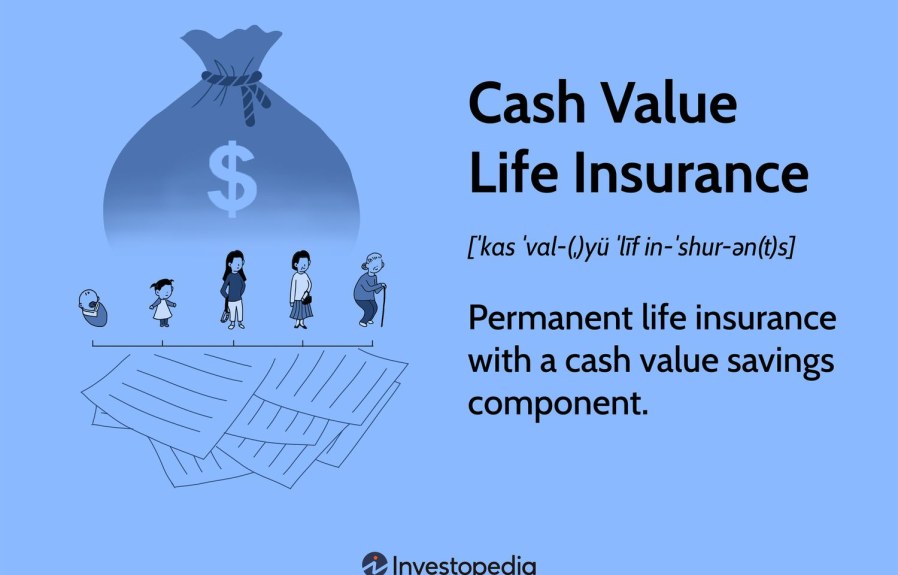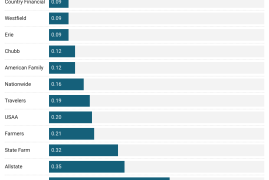Term insurance does not have a cash value. It provides pure life insurance coverage for a specified term and does not accumulate any cash or investment value.
Term insurance is a straightforward and cost-effective option for individuals looking for temporary coverage without the need for cash accumulation or investment benefits. This type of insurance offers a death benefit to the beneficiaries if the insured passes away during the term of the policy.
Since term insurance focuses solely on providing a death benefit, it does not build any cash value over time. However, the affordability and simplicity of term insurance make it a popular choice for many individuals who are primarily concerned with protecting their loved ones in the event of their untimely death.
What Is Term Insurance?
Term insurance provides a straightforward way to protect your loved ones financially.
In essence, it is a type of life insurance that offers coverage for a specified period.
Let’s delve into the specifics of term insurance to better understand its nuances.
Definition Of Term Insurance
Term insurance is a form of life insurance that provides coverage for a specific period.
The policyholder pays premiums for the coverage, and if they pass away during the term, the beneficiaries receive the death benefit.
Features Of Term Insurance
- Affordable: Term insurance usually has lower premiums compared to permanent life insurance.
- Flexibility: Policies are customizable based on the duration and coverage amount needed.
- No Cash Value: Unlike permanent life insurance, term policies do not accumulate cash value over time.
- Renewable: Some term policies offer the option to renew or convert to permanent insurance.
- Coverage: Provides a death benefit to beneficiaries if the insured passes away during the policy term.
Cash Value In Term Insurance
In the world of life insurance, determining the cash value is often associated with policies that offer a combination of insurance coverage and investments, such as whole life or universal life insurance. These policies are designed to build up a cash value over time, which can be accessed by the policyholder during their lifetime. However, when it comes to term insurance, which is a pure form of life insurance coverage, the concept of cash value is quite different. In this article, we will explore the concept of cash value in term insurance and how it differs from other types of life insurance policies.
Before delving into how cash value differs in term insurance, let’s first explore the meaning of cash value in general. Cash value refers to the accumulated savings component of a life insurance policy that grows over time. This cash value is essentially a pool of money that policyholders can access or borrow against during the life of the policy. It is a benefit offered by certain types of permanent life insurance policies and serves as a way to provide coverage and build assets simultaneously.
Unlike other life insurance policies, term insurance does not offer a cash value component. Term insurance is designed to provide a specified death benefit to the policyholder’s beneficiaries if the insured individual passes away during the defined term of the policy. It is a straightforward form of coverage that focuses solely on protecting loved ones financially in the event of the policyholder’s death. As a result, term insurance does not accumulate cash value over time.
Term insurance premiums are typically lower compared to permanent life insurance policies, primarily because the policies do not build cash value. While this lack of cash value may seem like a disadvantage at first, it is important to consider that term insurance is generally purchased for a specific period, such as 10, 20, or 30 years, with the expectation that the policyholder will outlive the term. Therefore, there is no need for the policy to build cash value since the primary goal is to provide financial protection for a set period.
In conclusion, term insurance does not have a cash value component, unlike other forms of life insurance such as whole life or universal life insurance. Term insurance is focused solely on providing a death benefit to the beneficiaries if the insured individual passes away during the defined term. Although it may not accrue cash value, term insurance remains a practical and cost-effective option for those seeking temporary coverage for their loved ones.
Importance Of Cash Value
Term insurance is known for providing pure death benefit protection without any cash value element. However, understanding the concept of cash value can be advantageous for policyholders. Despite not being a feature of term insurance, recognizing the significance of cash value can help individuals make informed decisions when selecting insurance coverage.
Although cash value is not inherent to term insurance, it plays a crucial role in other types of life insurance. For instance, in whole life and universal life policies, the cash value component accumulates over time, providing a savings element in addition to the death benefit. This cash value can be utilized for various financial needs, such as supplementing retirement income or meeting unexpected expenses.
- Guaranteed savings component
- Ability to take out policy loans
- Potential for cash value growth over time

Credit: http://www.annuityexpertadvice.com
Comparison With Whole Life Insurance
When it comes to insurance options, it’s essential to understand the differences between term insurance and whole life insurance, particularly when it comes to cash value. While whole life insurance policies do accumulate cash value over time, term insurance does not have a cash value component. Let’s take a closer look at the comparison with whole life insurance and understand the differences in cash value between the two options, as well as the pros and cons of cash value in each.
Differences In Cash Value Between Term And Whole Life Insurance
When comparing term insurance and whole life insurance, the most significant difference lies in the cash value accumulation. Whole life insurance policies build cash value as the policyholder pays premiums, while term insurance policies do not accumulate any cash value over time. This cash value in whole life insurance policies can be borrowed against or withdrawn, providing a unique financial advantage that term insurance does not offer.
Pros And Cons Of Cash Value In Each
Whole life insurance’s cash value component can provide a reliable savings element, allowing policyholders to access funds for various financial needs. However, this added feature typically results in higher premiums compared to term insurance. On the other hand, term insurance provides straightforward coverage for a specific period without the complexity of cash value accumulation. While term insurance may not have a cash value, it does offer affordable premiums and flexibility in coverage periods, making it a popular choice for many individuals and families.
Flexibility In Term Insurance
When it comes to term insurance, many people wonder if it has a cash value. Unlike permanent life insurance policies, term insurance does not typically accumulate cash value over time. However, this does not mean that term insurance lacks flexibility. In fact, term insurance can still provide certain cash value options that policyholders can take advantage of. Let’s explore the flexibility of cash value options in term insurance.
Flexibility Of Cash Value Options
In term insurance, the cash value options refer to specific features or riders that policyholders can add to their policy to enhance its flexibility. These options can provide additional benefits that can be utilized during the term of the policy.
How To Utilize Cash Value In Term Insurance
Although term insurance itself does not accumulate cash value, there are ways to make use of the cash value options available:
- Return of Premium Rider: This rider allows the policyholder to receive a refund of the premiums paid if they outlive the term of the policy. It offers a degree of financial flexibility, providing a safety net if the policyholder’s circumstances change.
- Convertible Option: Some term insurance policies come with the option to convert the policy into a permanent life insurance policy without the need for additional underwriting or medical exams. This can be a valuable option if the policyholder’s needs change in the future and they require lifelong coverage.
- Accelerated Death Benefit Rider: This rider allows the policyholder to access a portion of the death benefit if they are diagnosed with a terminal illness. It provides valuable financial flexibility during a difficult time, helping to cover medical expenses or ensure a comfortable quality of life.
These cash value options in term insurance offer policyholders the flexibility to adapt their coverage based on their changing needs. While term insurance itself does not accumulate cash value, these options provide valuable benefits that add flexibility to the policy.

Credit: http://www.whitecoatinvestor.com
Factors Influencing Cash Value
Factors Influencing Cash Value:
When considering term insurance, understanding the factors that influence the cash value is crucial. These factors can impact how much cash value your policy accrues over time.
Factors That Impact Cash Value Accumulation:
- Premium Payment: Regular and timely payments increase cash value.
- Policyholder’s Age: Younger policyholders typically accumulate more cash value.
- Policy Duration: Longer policy terms result in higher cash values.
Strategies To Maximize Cash Value:
- Choose a longer term policy for increased cash value accumulation.
- Pay premiums consistently to build up cash value over time.
- Consider adding riders or options that enhance cash value growth.
Common Misconceptions
Common Misconceptions:
Myths About Cash Value In Term Insurance
One common misconception about term insurance is that it comes with a cash value component.
Many individuals erroneously believe that term insurance policies accumulate cash value over time.
Clarifying The Truth
Term insurance, unlike whole life insurance, does not accrue cash value.
Instead, term insurance provides pure death benefit protection for a specified period.
:max_bytes(150000):strip_icc()/Life-Insurance-a8aee8e3024145a8b454ea19df030418.png)
Credit: http://www.investopedia.com
Frequently Asked Questions Of Does Term Insurance Have A Cash Value
What Is The Cash Value Of Term Insurance?
Term insurance does not accumulate cash value over time. It provides a death benefit for a specific term without any cash savings component.
Can Term Insurance Be Converted To A Cash Value Policy?
No, term insurance cannot be converted to a policy with cash value. Cash value is a feature of permanent life insurance, not term insurance.
Why Doesn’t Term Insurance Have Cash Value?
Term insurance is designed to provide pure death benefit protection without the added expense of cash value accumulation, making it more affordable for policyholders.
Conclusion
Term insurance does not have a cash value component. Unlike permanent life insurance policies, which often come with a savings or investment component, term insurance is solely designed to provide a death benefit for a specified period. While it may not offer a cash value, term insurance remains an affordable and practical option for individuals seeking temporary coverage.
It offers financial protection to beneficiaries in the event of the policyholder’s death during the term. Ultimately, understanding the key features of term insurance helps individuals make informed decisions about their life insurance needs.
{ “@context”: “https://schema.org”, “@type”: “FAQPage”, “mainEntity”: [ { “@type”: “Question”, “name”: “What is the Cash Value of Term Insurance?”, “acceptedAnswer”: { “@type”: “Answer”, “text”: “Term insurance does not accumulate cash value over time. It provides a death benefit for a specific term without any cash savings component.” } } , { “@type”: “Question”, “name”: “Can Term Insurance Be Converted to a Cash Value Policy?”, “acceptedAnswer”: { “@type”: “Answer”, “text”: “No, term insurance cannot be converted to a policy with cash value. Cash value is a feature of permanent life insurance, not term insurance.” } } , { “@type”: “Question”, “name”: “Why Doesn’t Term Insurance Have Cash Value?”, “acceptedAnswer”: { “@type”: “Answer”, “text”: “Term insurance is designed to provide pure death benefit protection without the added expense of cash value accumulation, making it more affordable for policyholders.” } } ] }


Leave a comment